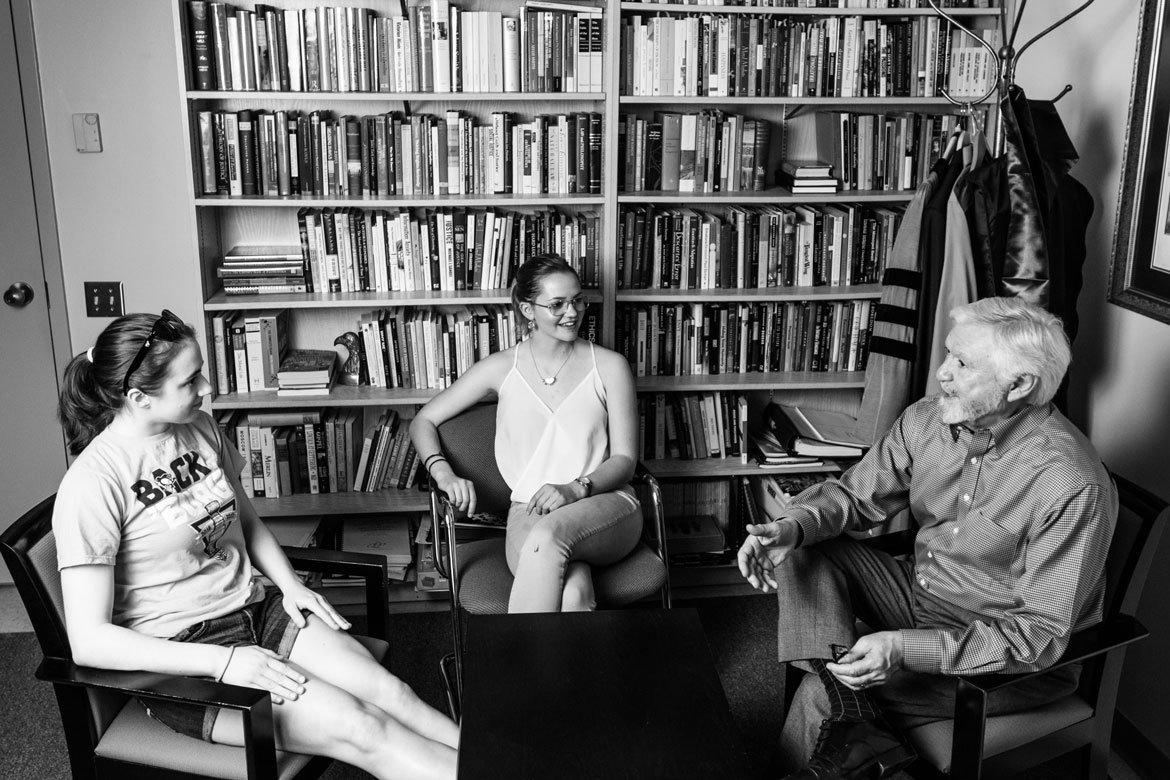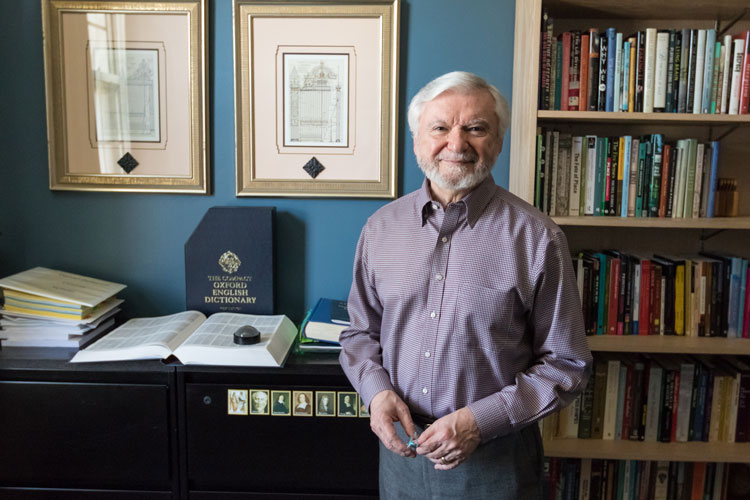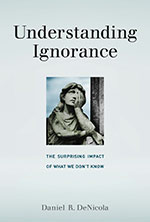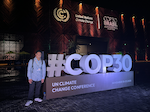

Ignorance surrounds us. It can be unrecognized by the possessor or deliberately chosen. It can suppress a lifetime of learning. Ignorance can also be bliss. Philosophy Prof. Daniel DeNicola’s new book, Understanding Ignorance: The Surprising Impact of What We Don't Know, strives to define and examine ignorance. It asks the question: If ignorance is a basic human condition, how can we manage it?
In previous centuries, those preoccupied with epistemology, the theory of knowledge, had not given serious treatment to what was thought of as knowledge’s opposite—ignorance. “They seemed to dismiss it too early,” said DeNicola. “Ignorance is much more complex than knowledge.”
DeNicola dove into the topic while writing his first book, Learning to Flourish: A Philosophical Exploration of Liberal Education. He intended for ignorance to frame a chapter, but soon realized it was too large a subject, and not widely researched.
What are the ethics behind ignorance? Why hasn’t it been studied more, and how can we manage the culture of ignorance? DeNicola asks these questions in his book, which won the 2018 PROSE award in the philosophy category. The PROSE Awards are given by the Association of American Publishers and annually recognize the very best in professional and scholarly publishing.
“A liberal arts education is the most effective way to help us cope with ignorance and roll back its effects,” said DeNicola, demonstrating the close connection between his two books. “Liberal arts education aims to produce habits of mind that keep the search for truth in the forefront. It strives to keep graduates from getting locked into a state of mind that doesn’t allow them to critically examine beliefs.”

MIT Press recognized ignorance as a timely topic and encouraged DeNicola to tilt his writing more towards a general audience. Despite the fact that we have more knowledge than ever before at our fingertips, a culture of ignorance has gained popularity.
“We see it everywhere—willful ignorance,” says DeNicola. “Willful ignorance is when someone refuses to know, rejects learning, accepts false knowledge, or does not consider anything else,” he continued. “People commit to a belief or value and filter out anything that conflicts with it.”
Be it a conflict over climate change or a person who ignores the cancer warning on a pack of cigarettes, filtering unwanted knowledge is often a response, in part, to too much conflicting information. It is the world in which we live.
The integrated thinking that comes with a liberal arts education has been a player in DeNicola’s career from the start. After graduating with a philosophy degree from Ohio University, DeNicola received a National Defense Education Act Fellowship at Harvard University, where he entered a joint philosophy and philosophy of education program. “At the time, having a strong education system was seen as important to keeping the nation secure,” he said.
After Harvard, at the age of 24, DeNicola began his teaching career at Rollins College in Winter Park, FL. By age 29, he was appointed dean. His roles at Rollins convinced DeNicola that a liberal arts institution—with research opportunities, quality colleagues, and interesting students—was where he should be.
In 1996, DeNicola became provost at Gettysburg College, a ten-year term that brought a redeveloped curriculum and multiple building updates. In 2006, he became the vice president for program development, working with the implementation of the Eisenhower Institute and the Leonard Bernstein Center.
Through the years, however, he always imagined ending his career in teaching. DeNicola became chair of Gettysburg College’s philosophy department in 2008 and ended his 45-year career in higher education this spring.
DeNicola’s most poignant moment when thinking of retirement was trying to decide what he would teach for his last term. Known for taking familiar things and making them less familiar, he taught courses such as the philosophy of color, place, and music. He has also had the pleasure, multiple times, of teaching a senior seminar focused on ignorance, using the type script of his book during the last seminar.
 “Gettysburg students rose to the occasion of studying ignorance. They were terrific in taking off with the topic,” he said. “They made me see even further how many implications there are with this subject.”
“Gettysburg students rose to the occasion of studying ignorance. They were terrific in taking off with the topic,” he said. “They made me see even further how many implications there are with this subject.”
DeNicola plans to continue writing and researching in retirement. His next book is focused on ethics and is already completed and under contract.


